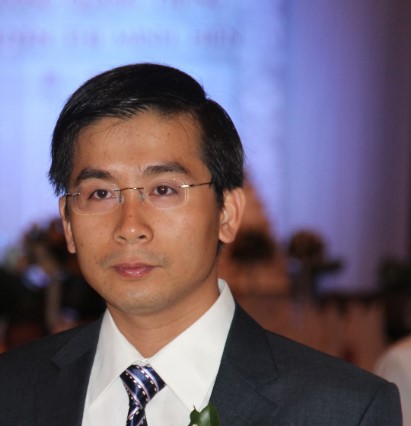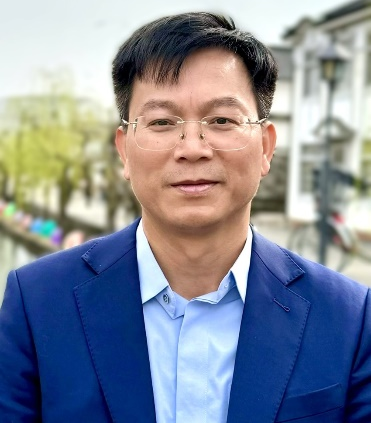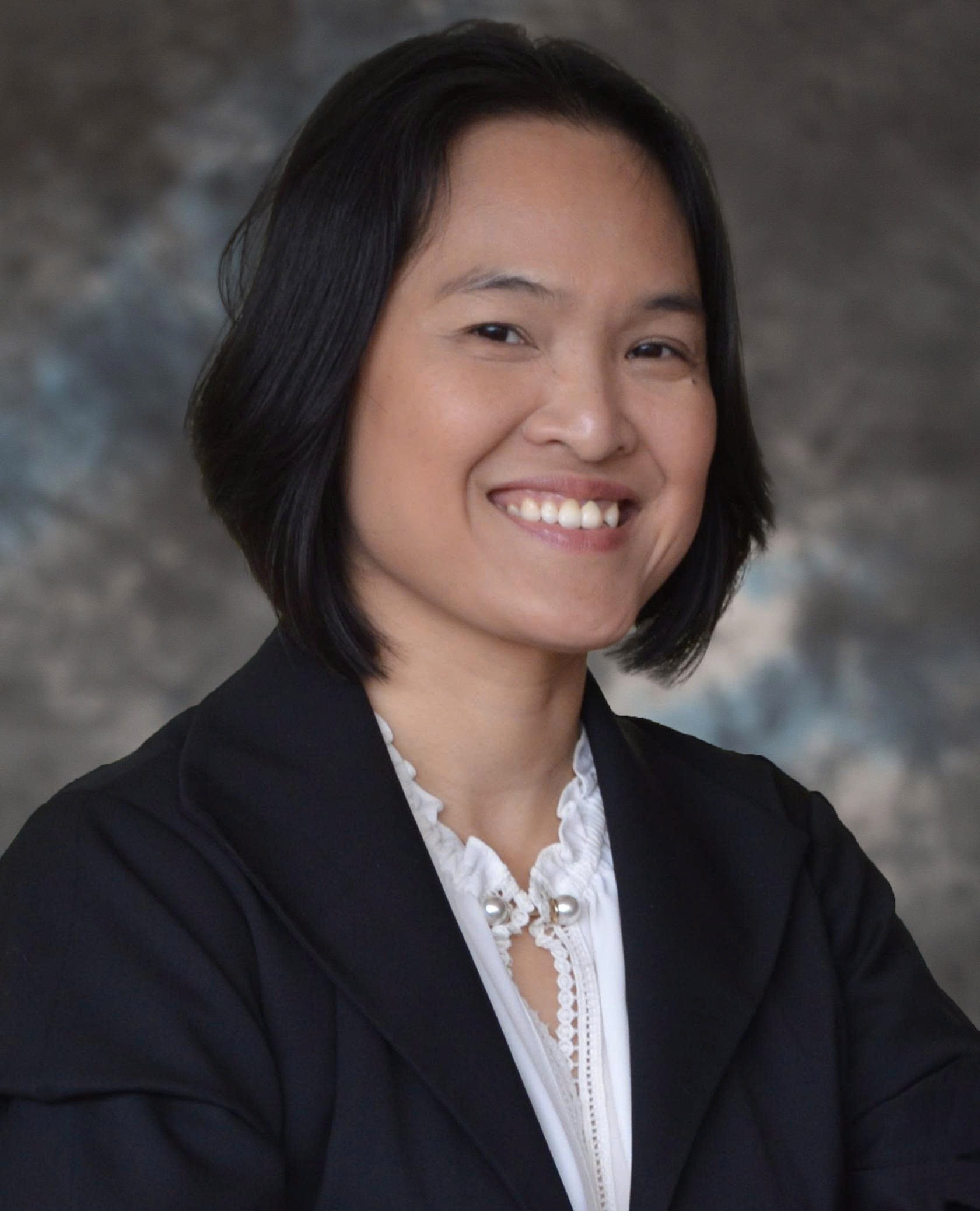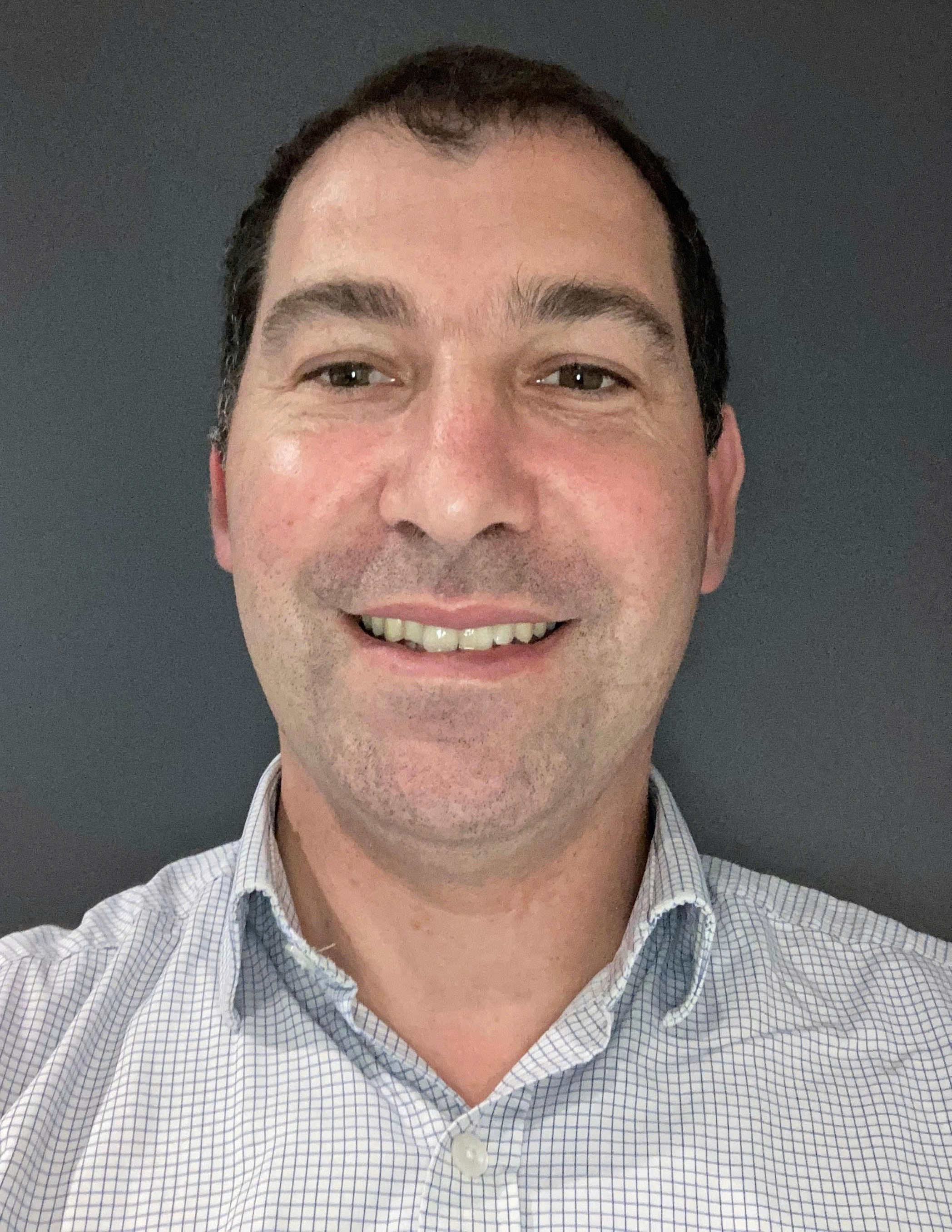KEYNOTE SPEAKERS
Quantum Machine Learning and Optimization for 6G Networks

Trung Q. Duong, Memorial University, Canada
Trung Q. Duong (IEEE Fellow)
Memorial University, Canada
Dr. Trung Q. Duong (IEEE Fellow) is a Canada Excellence Research Chair and Full Professor at Memorial University of Newfoundland, Canada. He is also an adjunct professor at Queen’s University Belfast, UK. His current research interests include quantum optimisation and machine learning in wireless communications. He is an author/co-author of 600+ publications with 23,000+ citations and h-index 82. He has served as an Editor for many reputable IEEE journals (IEEE Trans on Wireless Communications, IEEE Trans on Communications, IEEE Trans on Vehicular Technology, IEEE Communications Surveys & Tutorials, IEEE Communications Letters, and IEEE Wireless Communications Letters) and has been awarded best paper awards in many flagship conferences including IEEE ICC 2014, IEEE GLOBECOM 2016, 2019, and 2022. He was awarded the Research Fellowship and Research Chair of the Royal Academy of Engineering. In 2017, he was awarded the Newton Prize from the UK government. He is a Fellow of IEEE, IET, CAE, EIC, and AAIA. He is currently the Editor-in-Chief of IEEE Communications Surveys and Tutorials and an IEEE ComSoc Distinguished Lecturer. He is the Founding Director of Quantum Communications and Computing Center (QC3).
Abstract:
Quantum computing uses the concept of quantum mechanics to offer a massive leap forward in relations to solving complex computation problems. Hybrid quantum-classical machine learning algorithms can significantly enhance the processing efficiency and exponentially computational speed-up, highly capable of guaranteeing high QoS requirements of 6G networks. This talk presents the state-of-the-art in quantum machine learning and optimization and provide a comprehensive overview of its potential, via machine learning approaches. Furthermore, this talk introduces quantum-inspired machine learning/optimization applications for 6G networks in terms of 6G channel estimation and RF fingerprinting considering their enabling technologies and potential challenges. Finally, some dominating research issues and future research directions for the quantum-inspired machine learning/optimization in 6G networks are elaborated.
When Generative AI Goes Airborne

Gottfried Vossen, University of Münster, Germany
Gottfried Vossen
University of Münster, Germany
Gottfried Vossen is a Professor of Computer Science in the Department of Information Systems at the University of Muenster in Germany and former Dean of the School of Business and Economics. He is a Fellow of the German Computer Science Society and a former Editor-in-Chief of Elsevier's Information Systems - An International Journal. He received his master’s and Ph.D. degrees as well as the German Habilitation, all in Computer Science, from RWTH Aachen University in Germany, His research interests include conceptual as well as application-oriented challenges concerning digitalization, business process modelling, data marketplaces, Large Language Models, and Generative AI.
Abstract:
Generative AI (GenAI) has shown transformative potential in a wide range of applications – from text generation to programming to image and video creation. Progress in recent years has been so rapid that we can expect to move beyond terrestrial domains soon. GenAI models can already enhance image resolution, fill missing data, optimize noisy data, and simulate realistic local as well as global scenarios, offering new opportunities, for example, for environmental monitoring, disaster response, and infrastructure planning. These capabilities are further enhanced by Agentic AI and the advances in robot technology. It therefore does not come as a surprise that these powerful capabilities will soon get extended into domains such as remote sensing or airborne platforms such as satellites and Unmanned Aerial Vehicles (UAVs) or drones.
This talk explores the opportunities and challenges of such an extension. Just like Big Data posed challenges to data processing 20 years ago, the volume and complexity of (geospatial) data requires new approaches to (pre-)processing, timeliness, scalability, and many others. The presentation outlines key research directions, challenges in domain adaptation, and provides pointers to current research.
UAV-to-X Communications for 6G: Aerial Base Stations, Relay Networks, and Beyond

Xuan Nam Tran, Le Quy Don Technical University, Viet Nam
Xuan Nam Tran
Le Quy Don Technical University, Viet Nam
Xuan Nam Tran currently serves as the Head of the Advanced Wireless Communications Research Group at Le Quy Don Technical University. His research interests lie in enabling technologies for next-generation wireless communications, with particular emphasis on space-time signal processing, UAV-based communications, in-band full duplex (IBFD) systems, reconfigurable intelligent surfaces (RIS), and the application of machine learning in wireless networks. He received his Master’s degree in Telecommunications Engineering from the University of Technology, Sydney (UTS), and his Doctorate in Electronic Engineering from the University of Communications, Tokyo, Japan. Prof. Tran is the author of five books and has published over 200 peer-reviewed papers in leading journals and international conferences. He is the Founding Chair and currently serves as the Chair of the IEEE Communications Society Vietnam Chapter. In addition, he holds the position of Vice President of the Radio-Electronics Association of Vietnam.
Abstract:
Unmanned Aerial Vehicles (UAVs) are emerging as a key enabler of 6G wireless networks, offering flexible, on-demand connectivity in dynamic and hard-to-reach environments. This talk presents recent advancements in UAV-based communications, with a focus on employing UAVs as Aerial Base Stations and Aerial Relay Stations. We investigate the integration of UAVs with Non-Orthogonal Multiple Access (NOMA), Intelligent Reflecting Surfaces (IRS), and short-packet transmission techniques to enable ultra-reliable, low-latency communications. In addition, we discuss key technical challenges and outline potential directions for future research in the design of intelligent, resilient, and energy-efficient UAV-to-X communication systems.
Federated Learning: Evolving Promise or Persistent Mirage?

My T. Thai, University of Florida, USA
My T. Thai (IEEE Fellow)
University of Florida, USA
My T. Thai is a Research Foundation Professor, Nelms Endowed Chair Professor, and Associate Director of Nelms Institute for the Connected World, University of Florida. She is also a fellow of IEEE and AAIA. Dr. Thai is a leading authority who has done transformative research in Trustworthy AI and Optimization, especially for complex systems with applications to healthcare, social media, critical networking infrastructure, and cybersecurity. In responding to a world-wide call of responsible and safety AI, Dr. Thai is a pioneer in designing deep explanations for black-box ML models, while defending against explanation-guided attacks, evident by her Distinguished Papers Award at the top-tier conference in AI, AAAI 2023. In 2023, she was also awarded an ACM Web Science Trust Test-of-Time award, for her landmark work on combating misinformation in social media done in 2011, significantly ahead of widespread awareness of misinformation threats. The model remains influential, continuing to stand the test of time. In 2022, she received an IEEE Big Data Security Women of Achievement Award. In 2010, she won the NSF CAREER Award, and a year earlier, she was awarded the Young Investigator from the Defense Threat Reduction Agency.
Abstract:
Federated Learning (FL) has evolved beyond its original FedAvg paradigm to include robust aggregation methods, personalization layers, and hardware‐backed secure aggregation. Yet fundamental threats persist that challenge its promise of privacy and security. In this talk, we examine FL’s recent innovations—such as Byzantine‐resilient aggregation, client‐level differential privacy accounting, and trusted execution environment (TEE) integration—and ask whether they truly secure decentralized model training or simply mask critical vulnerabilities. Next, we analyze new federated architectures for large pre-trained models – such as federated fine-tuning. We highlight how high‐dimensional gradient updates in these settings can still expose sensitive data. By formally evaluating privacy guarantees under realistic adversarial budgets, we demonstrate that current FL implementations offer little to no provable protection for model inputs or participant data, and thus calling for a fundamental re-visit.
Security in Datacenters for AI Applications

Sylvain Guilley, Secure-IC S.A.S., France
Sylvain Guilley
Secure-IC S.A.S., France
Sylvain Guilley is General Manager and CTO at Secure-IC, a company offering security for embedded systems. Sylvain is also an adjunct professor at Telecom Paris, and a research associate at Ecole Normale Superieure (ENS). He is the lead editor of international standards, such as ISO/IEC 20897 (Physically Unclonable Functions), ISO/IEC 20085 (Calibration of non-invasive testing tools), and ISO/IEC TR 24485 (White Box Cryptography). As the administrator of the Embedded France professional association, he leads the cybersecurity working group. Sylvain has co-authored 350+ research papers and filed 40+ invention patents.
Abstract:
AI datacenters are the reactors of the new data revolution. Without surprise, there are huge expectations in terms of CIA (Confidentiality, Integrity, Availability) on these pieces of infrastructure. We analyze the security problem and notice that it is way broader in extent/scope than could be imagined at first glance. In particular, we stress that confidentiality is not the only problem. As a matter of fact, the AI is “only as good as the data that comes in/out”. So data integrity is also an enormous stake. If the data is corrupted, AI is pointless. That’s all the more true when data/models are intertwined, such as in reinforcement learning. Vigilance must be sustained at any time.
In this context, we state that cybersecurity is key, and requires the leverage of multiple technologies that must integrate seamlessly into those data factories that operate under tight flow. We base our analysis on a threat analysis and risk assessment methodology. We stress the need for end-to-end data/model/code protection.
Beat Sensors and Lightweight Data Encryption for Long-Power and Long-Range IoT sensors

Koichiro Ishibashi, The University of Electro-Communications, Japan
Koichiro Ishibashi (IEEE Fellow)
The University of Electro-Communications, Japan
Prof. Koichiro Ishibashi has been a Professor Emeritus of The University of Electro-Communications (UEC), Tokyo, Japan since 2023. He was a full professor of UEC from 2011 to 2023, where he had investigated on low power IoT systems and Energy harvesting technologies for IoT as well as low power LSI design technologies. He has been serving a visiting professor at Ho Chi Minh City University of Technology and Ho Chi Minh City University of Science since 2012. He also serves a visiting professor at Vietnam National University, Information Technology Institute since 2023.
After receiving doctor degree from Tokyo Institute of Technology in 1985, he worked at Central Research Laboratory, Hitachi Ltd. and at Renesas Electronics, where he had investigated low power LSI technologies for high density SRAMs and MCUs. He was awarded R&D 100 for the development of SH4 Series Microprocessor in 1999. He has been a Fellow of IEEE from 2005 for the technical contributions to developments of low-power SRAMs and MCUs, and has been a Life Fellow of IEEE since 2024. Throughout his carrier of R&D and education on semiconductor devices and IC designs for 43 Years, he has presented more than 250 academic papers at international conferences and journals including 30 key note or invited presentations.
His current interest is educational activities and training on updated semiconductor technologies and IC design techniques, and IoT technologies.
Abstract:
It has been great progress on the technology of IoT Sensors as one of main devices to support Industry 5.0 society. The energy harvesting IoT sensors operates with energy from environments without any battery and transmit data in wireless, so that sensors can be placed in proper places. Our developing IoT sensors called as Beat Sensors transmit data at the communication range of 2 km even utilizing energy harvesting power supply. Considering the spread of IoT, data security is inevitable issue, however, data encryption needs a lot of energy depending on the way of encryption so that IoT sensor may not operate with the energy harvesting power supply. In this Paper, recent progress on the Beat Sensor is introduced, followed by the introduction to the lightweight data encryption for Beat Sensors.